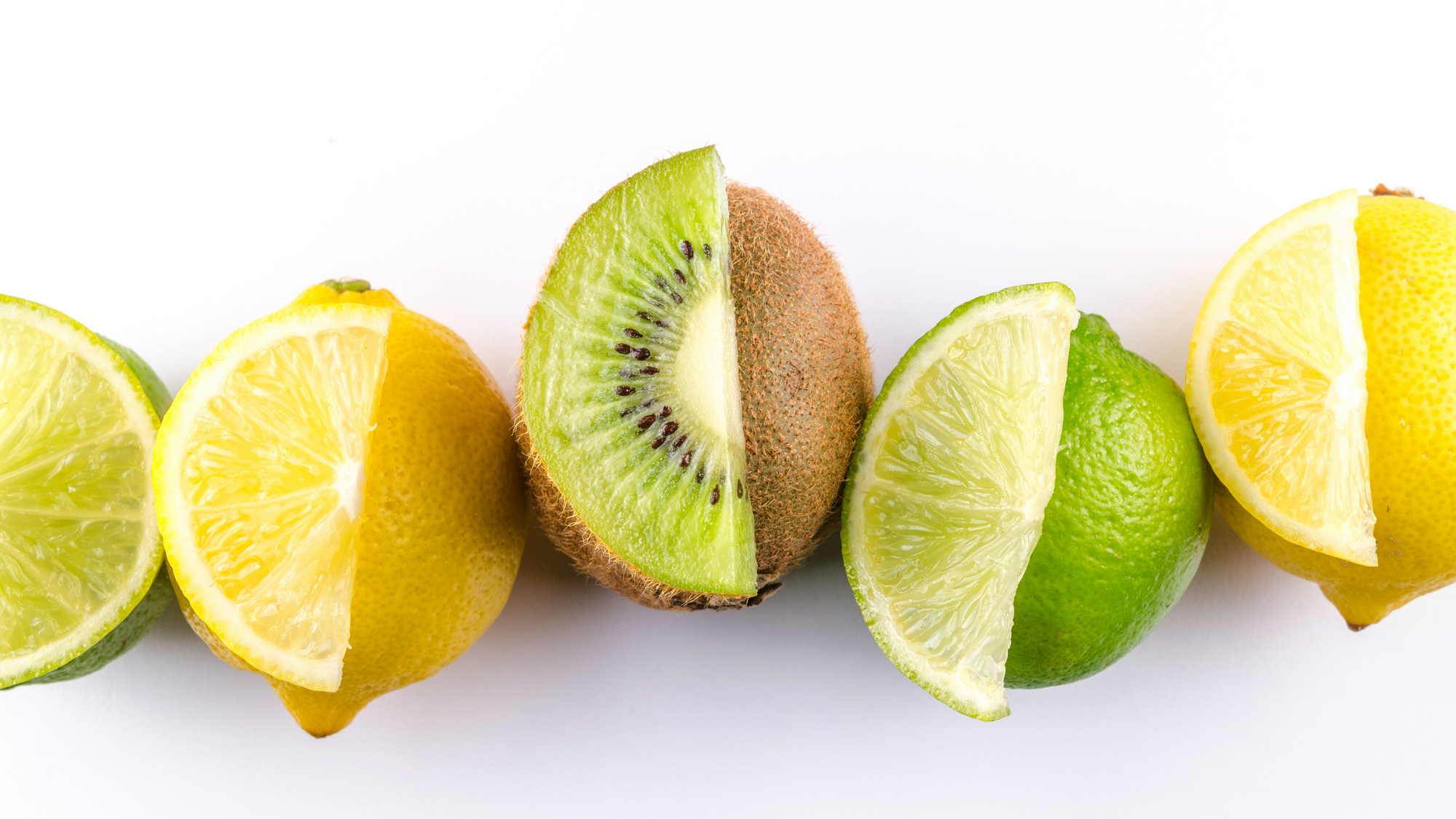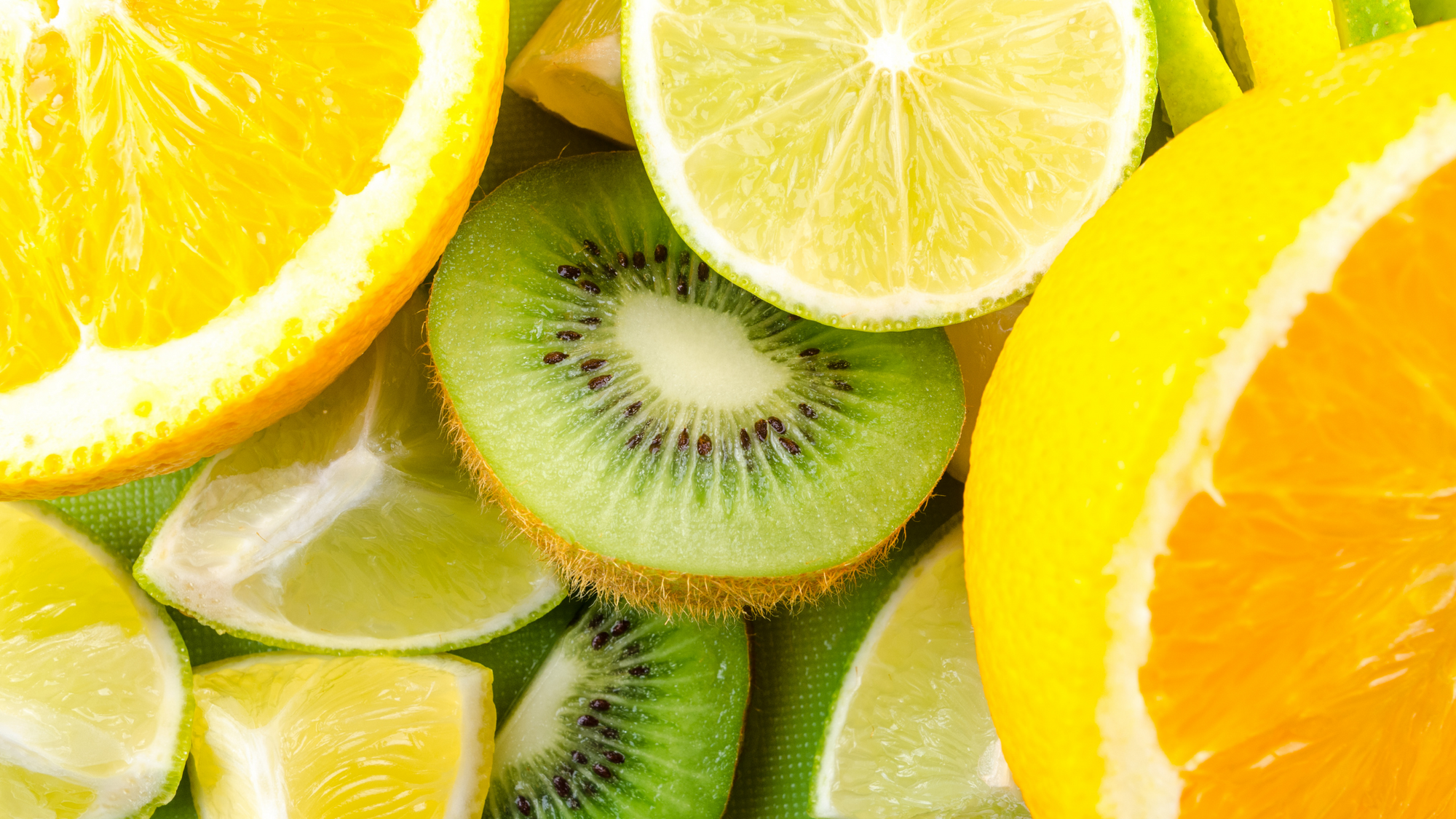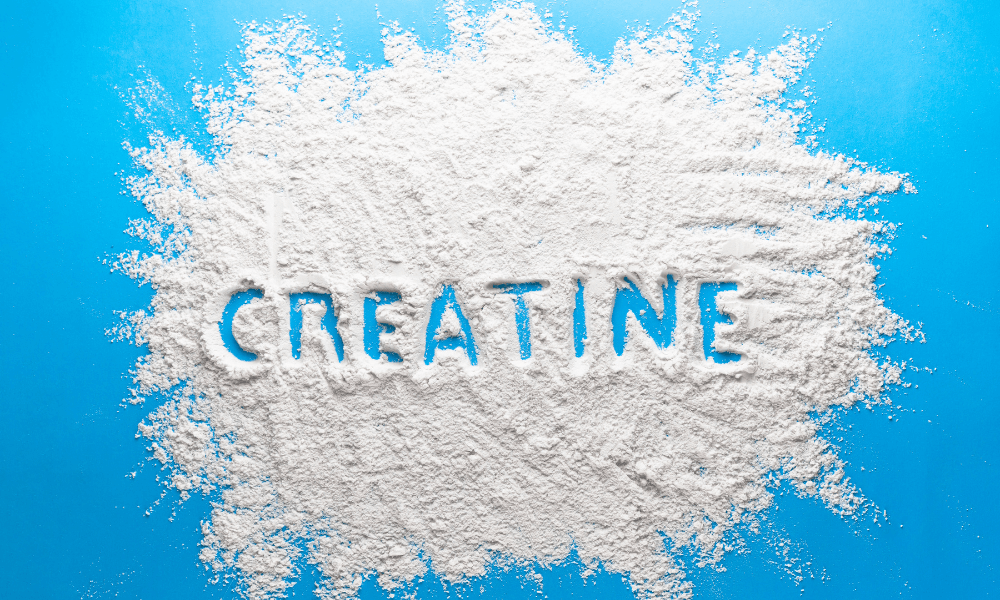Latest posts
Magazine

Vitamin C
Vitamin C: Effects, deficiency symptoms and natural occurrence
Vitamin C is probably the best-known vitamin because it is said to prevent and fight colds. Especially during the cold season, we are bombarded with advertisements for products containing vitamin C that are supposed to strengthen our immune system.
Why is vitamin C so important, how can you prevent a deficiency and which foods are particularly rich in vitamin C? Here you will find all the important information.
It’s worth reading on:
We have created a discount code for you on our Vitamin C. You can find this discount code further down in the article.
What is vitamin C?
The chemical term for vitamin C is ascorbic acid . It is an essential nutrient . This means that we cannot produce vitamin C ourselves and therefore must ingest it through food.
Vitamin C is a water-soluble vitamin and therefore cannot be stored in the body for long. We can only avoid deficiency symptoms by consuming sufficient amounts every day.
What does vitamin C do in the body?
Ascorbic acid is involved in many metabolic processes in the body. It is particularly important for the immune system . It contributes to its normal function and thus protects us from infections .
In addition, ascorbic acid is involved in the formation of collagen - an important protein in connective tissue that is a component of skin , bones , tendons , ligaments , cartilage and blood vessels . Vitamin C also has an antioxidant effect and helps to protect cells from oxidative stress caused by free radicals .
Vitamin C is also important for the usability of other nutrients: it increases iron absorption in the body and is needed for the production of carnitine , which ensures a healthy energy metabolism. [1]
Symptoms of vitamin C deficiency
We all know it from old pirate films, in which sailors fell ill with scurvy after a long time at sea. This is probably the best-known symptom of a vitamin C deficiency. If you don't eat fresh fruit and vegetables for months, you develop mouth rot , which causes severe bleeding of the gums and, after a while, can even cause your teeth to fall out . This acute form of vitamin C deficiency is very extreme and is rare these days.
However, studies show that around 25% of the population is not optimally supplied with vitamin C. [2] This can lead to early symptoms. [3] These symptoms can be very unspecific, meaning that the causes of these complaints are wide-ranging. If you have one or more of the following symptoms, this does not necessarily mean that you have a vitamin C deficiency. Only a blood test at the doctor's can reveal a vitamin C deficiency.
The usual symptoms are:
reduced performance
increased exhaustion
mild irritability
increased susceptibility to infection
poor wound healing
Limb and joint pain
increased need for sleep
Foods with the highest vitamin C content
According to the DGE, the recommended daily requirement of vitamin C is 110 mg for men and 95 mg for women . Pregnant and breastfeeding women have a slightly increased requirement of 105 mg and 125 mg respectively. [4]
Just 100 g of many types of fruit and vegetables contain so much vitamin C that they sometimes even exceed the daily requirement. However, these figures only apply to raw, unprocessed foods, as the vitamin C content decreases when heated .
The table below shows which natural foods are particularly rich in vitamin C. [5] Surprisingly, oranges don't even make it into the top 10 and lemons are by no means the top performer either!
mg vitamin C per 100g
paprika
183
Acerola cherry
1677
Blackcurrants
181
Parsley
133
Kale
120
kiwi
93
broccoli
93
Cauliflower
88
Brussels sprouts
85
Lemons
77
Causes of vitamin C deficiency
We usually get enough vitamin C from our daily diet. Even people who don't like fruit and vegetables are rarely affected by deficiency symptoms, as you can still get enough vitamin C even with small amounts.
So how can a vitamin C deficiency arise?
A vitamin C deficiency occurs when the body cannot properly absorb or utilize ascorbic acid from food. Certain diseases and living conditions can be responsible for this: [6]
Medicines such as birth control pills, aspirin, antidepressants, antibiotics and diabetes medications
Alcoholism, smoking, drug abuse
Gastrointestinal diseases
chronically elevated blood sugar
Increased blood sugar – the underestimated cause of insufficient vitamin C supply
In particular, chronically elevated blood sugar causes a vitamin C deficiency. This is because the vitamin competes with sugar for absorption into the cells. [7] As long as blood sugar is elevated, the cells cannot absorb vitamin C efficiently from the blood.
If blood sugar rises briefly after eating, which is completely normal, this is not a problem. It only becomes problematic when the body has difficulty regulating blood sugar and it is therefore too high for too long . In addition, high blood sugar causes oxidative stress, which increases the need for vitamin C even further.
In diabetes, blood sugar is not adequately controlled and the disease is therefore a common cause of vitamin C deficiency. [8]
Vitamin C preparations
Vitamin C is available in the form of tablets , capsules and many other forms. Liposomal vitamin C is relatively new and innovative. The liposomes , which you can imagine as fat bubbles , enclose the vitamin C in a protective manner and thus reduce the breakdown during the digestive process. This enables the body to absorb more vitamin C. [9]
Conclusion: Many people are not optimally supplied with vitamin C
Vitamin C is an important antioxidant and contributes to the normal functioning of the immune system . It is found in abundance in fruit and vegetables, so the risk of deficiency in healthy people is rather low. However, illnesses such as diabetes and the use of certain medications can impair the absorption of vitamin C , so supplementary supply can be useful.
As promised, you will receive a 10% voucher for our Vitamin C.
Simply copy the following code and enter it at checkout:
VITAMINC10
[1] https://www.ncbi.nlm.nih.gov/books/NBK499877/
[2] https://www.ncbi.nlm.nih.gov/pmc/articles/PMC1448351/
[3] https://www.ncbi.nlm.nih.gov/pmc/articles/PMC2567249/
[4] https://www.dge.de/forschung/referenzwerte/vitamin-c/
[5] https://nutritiondata.self.com/foods-000101000000000000000-w.html
[6] https://www.ncbi.nlm.nih.gov/books/NBK499877/
[7] https://pubmed.ncbi.nlm.nih.gov/16118484/
[8] https://www.ncbi.nlm.nih.gov/pmc/articles/PMC5622757/
[9] https://www.ncbi.nlm.nih.gov/pmc/articles/PMC4915787/

Darmgesundheit
Strengthen your immune system: With these 5 tips you will become more resistant to infections
If you are constantly sick or have a constant cold, you probably have a weak immune system.
Pathogens such as bacteria , viruses and fungi are considered to be the cause of infections . However, our environment is teeming with pathogens: we are constantly exposed to them. The question of whether we fall victim to them and catch a cold, for example, depends on how well our immune system can fight off harmful invaders.
IT'S WORTH READING:
WE HAVE CREATED A DISCOUNT CODE FOR YOU ON THE PRODUCTS OF THIS ARTICLE OFFERED IN THE SHOP. YOU CAN FIND IT AT THE END OF THE ARTICLE.
With these 5 tips you can strengthen your immune system and reduce your susceptibility to infections:
1) Supply your immune system with vitamins and minerals
Your immune system needs a number of vitamins and minerals to function properly. If you are lacking just one of these nutrients, your immune system may be weakened and you may become sick more easily.
The following nutrients are particularly important:
Vitamin C
Vitamin C supports the immune system in several ways. First, it contributes to collagen formation and thus supports the function of the skin . The skin is the first barrier against harmful invaders. In addition, vitamin C stimulates the proliferation of immune cells that produce antibodies . Antibodies recognize and bind to pathogens, allowing the body to easily get rid of them. [1]
The daily requirement of vitamin C is 95 mg for women and 110 mg for men . [2] You can easily reach these amounts if you eat fresh fruit and vegetables every day.
In our article about vitamin C you will learn more about this important vitamin and which foods are particularly rich in it.
zinc
Zinc supports the immune system by contributing to the development and function of immune cells. [3]
The daily requirement of zinc is 7-16 mg . [4] The requirement depends on how much grains and legumes you eat. This is because these foods contain phytic acid, which binds zinc and thus reduces the absorption of this mineral. [5]
B vitamins : vitamin B6, folic acid, vitamin B12
The intestine plays an important role in the immune system. The B vitamins B6, B12 and folic acid (vitamin B9) primarily support the part of the immune system that takes place in the intestine. Vitamin B6 helps immune cells to reach the intestine. Folic acid promotes the survival of immune cells in the small intestine and vitamin B12 helps to strengthen the intestinal barrier. [6]
2) Improve your gut health
As mentioned, a healthy gut is the be-all and end-all when it comes to strengthening the immune system. The gut is an internal organ, but it is also the gateway to the outside world . What you eat passes through the mouth, esophagus and stomach into the gut, where most of the nutrients are absorbed through the mucous membrane. The gut barrier therefore represents a hurdle for pathogens. In addition, gut bacteria support the function of immune cells. [7]
You can support your gut health with fermented foods such as sauerkraut and kombucha , which provide valuable probiotic bacteria and thus support your gut flora. Fiber-rich foods, on the other hand, provide food for beneficial gut bacteria.
3) Spend enough time in the sun
The sun is the most important source of vitamin D. Vitamin D supports the normal function of the immune system. Scientists even suspect that a poor supply of vitamin D in winter is one reason why we are so susceptible to flu viruses at this time of year. [8]
However, especially in our latitudes, it can be a challenge to meet vitamin D requirements naturally. A study by the Robert Koch Institute has shown that more than half of Germans are not optimally supplied with vitamin D. [9] These people would most likely benefit from supplementation with high-quality vitamin D.
In our article about vitamin D you will learn why the sunshine vitamin is so important and how you can prevent a deficiency.
4) Make sure you get enough sleep
Restful sleep helps the body to regenerate and thus strengthens the immune system. A study has shown that people who sleep less than 7 hours have a 3 times higher risk of catching a cold than people who sleep 8 hours or more. [10] The hours before midnight are particularly valuable, so try to go to bed as early as possible.
5) Reduce stress
Stress is not always bad. Stress releases energy that helps you perform at a particularly high level in an exceptional situation.
For our ancestors, a dangerous situation was a typical trigger for stress. In such a moment, escaping the danger has the highest priority. All available energy is used for this and many other body functions, such as the immune system, are temporarily shut down.
If this only happens occasionally for a short period of time, it is not a problem. Long-term stress, on the other hand, can permanently weaken the immune system , making you more susceptible to infections. [11]
For this reason, you should try to reduce stress in your everyday life as much as possible.
Conclusion: The immune system can be strengthened with simple means
A strong immune system is the result of a healthy lifestyle . Our immune system needs vitamins and minerals , a healthy gut and restful sleep to function optimally. Too much stress, an inadequate supply of nutrients and a diet that is harmful to the gut, on the other hand, weaken the immune system. It is not always easy to meet nutritional needs through diet. Targeted supplementation with essential vitamins and minerals can help to correct and prevent deficiencies. In the Viktilabs online shop you will find nutritional supplements of the highest quality and purity.
As promised, you will receive a 10% voucher on the following products:
Vitamin B complex, Vitamin B complex Forte, Vitamin B12 ,
Vitamin C , Vitamin D, Zinc, Zinc/Copper
Simply copy the code IMMUNSYSTEM10 and enter it at checkout.
To the products!
[1] https://pubmed.ncbi.nlm.nih.gov/29099763/
[2] https://www.dge.de/forschung/referenzwerte/vitamin-c/
[3] https://www.ncbi.nlm.nih.gov/pmc/articles/PMC2277319/
[4] https://www.dge.de/forschung/referenzwerte/zink/
[5] https://pubmed.ncbi.nlm.nih.gov/10801947/
[6] https://www.ncbi.nlm.nih.gov/pmc/articles/PMC7019735/
[7] https://www.sciencedirect.com/science/article/pii/S2452231718300095
[8] https://www.ncbi.nlm.nih.gov/pmc/articles/PMC2870528/
[9] https://www.rki.de/SharedDocs/FAQ/Vitamin_D/Vitamin_D_FAQ-Liste.html
[10] https://pubmed.ncbi.nlm.nih.gov/19139325/
[11] https://pubmed.ncbi.nlm.nih.gov/18279846/


















